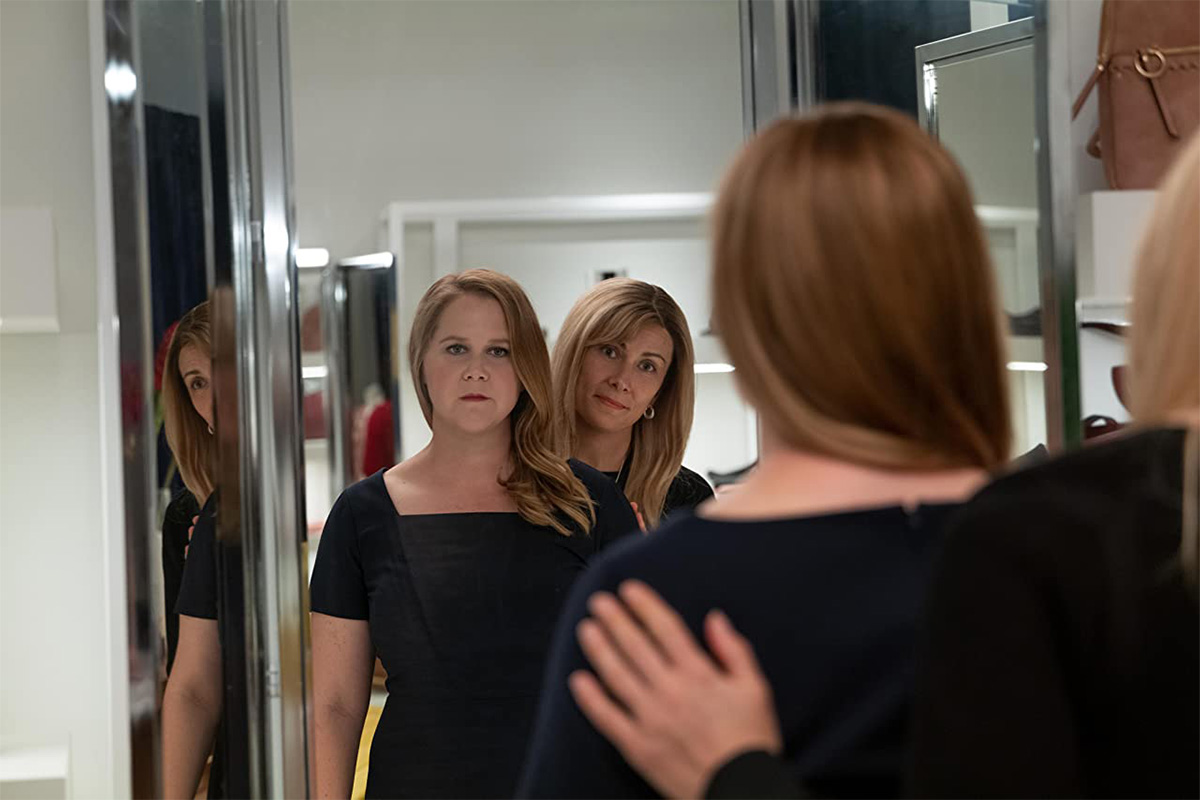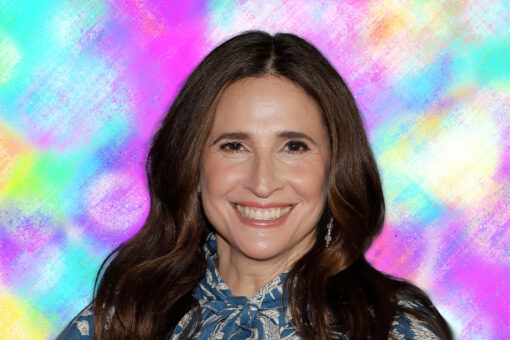Spoilers ahead for “Life & Beth.”
This past weekend, I was excited to usher in Shabbat with the release of Amy Schumer‘s new show, “Life & Beth.” I went in expecting typical hilarity à la Schumer; I wasn’t prepared for the final episode to leave me completely moved, brought to tears by the absolute beauty of this incredible narrative. I love Amy Schumer’s humor, and while I know she’s Jewish, she’s never heavily centered her comedy around the Jewish aspect of her identity. But in “Life & Beth,” it does become a focus — and while a lot of Jewish comedians take a negative and self-deprecating approach to their Jewishness, Schumer’s “Life & Beth” portrayal of Jewish identity struck me as refreshingly authentic and positive. To take it a step further, I was stunned by how “Life & Beth” depicted the Jewish concept of shiva in a way that is relatable to everyone who has ever struggled with pain and loss.
Before we delve into the shiva plotline, it’s worth shining a spotlight on all of the incredible Jewish content. By episode 2, we find ourselves in a synagogue for Beth’s mother’s funeral, after having visited a Jewish funeral parlor to make the arrangements. As Amy Schumer’s titular character sits in synagogue for the service, she flashes back to her younger self standing at the same bimah and singing the blessing for reading the Torah at her bat mitzvah (and doing a pretty amazing job, by the way). Later, while the rabbi sings at the wake, one of Beth’s boyfriend’s friends (none of whom like her) comes over to put a rock on her shoulder. It’s as awkward as it sounds. He says, “I heard on the internet they do that at Jewish funerals instead of leaving flowers on the grave.” Beth is actually surprised and touched by the gesture — until he follows it up with, “Actually, I’ve grown kind of attached to it? I think I’ll just hold onto it,” and takes the rock back.
A hilarious conversation unfolds in episode 3 when Beth meets up with her childhood friend Maya (Yamaneika Saunders) for a drink to take the edge off.
Beth: What are you doing on your phone?
Maya: Oh, you know, I signed up for JewDate.
Beth: JDate?
Maya: JewDate, honey, for me. They don’t know who the hell I am; they don’t know black women. They think I’m Lizzo.
Beth: I’ve never dated a Jew, you know that?
Maya: You are a Jew.
Beth: I know.
Maya: What you got against your people?!
Beth: Are you allowed to say Jew?
Maya: Am I allowed?
Beth: Yeah.
Maya: I’m Black, I can say whatever I want. Who gonna stop me?!
Beth: Oh, I dunno. I didn’t know what the rules were now.
Maya: Yeah, I love Jews.
Beth: We thank you for your support.
Maya: Well, you’re welcome. I love everything about the Jews—your style, your swag, your dancing around, ya know what I’m saying? Bouncing people around in chairs and stuff like that.
(It’s fetishizing in the funniest, best way possible.)
Dayenu — it would have been enough if “Life & Beth” only offered authentic Jewish representation, neither reducing Beth to stereotypes nor downplaying or shaming her Jewish parts. It would even have been enough to experience its real and romantic portrayal of John (Beth’s love interest, played by Michael Cera), who is evidently autistic and leaves you swooning. (His character seems to be based heavily on Amy’s real-life partner, Chris Fischer, which is the sweetest thing of all time because Beth is portrayed as being so happy and confident in her relationship with John!)
But as I mentioned, the show takes this all a step further by making this a story that parallels the Jewish concept of shiva — the tradition of mourning the death of loved ones. Maya begins dating a man named Shlomo (whom she presumably met on JDate), and he is the one who explains shiva to Beth after she spontaneously joins him and Maya in attending a Zoom bris for Shlomo’s nephew. As they close the laptop, a dialogue ensues:
Maya: This tradition is… fucked.
Shlomo: Not my favorite ritual. But they all have their purpose.
Beth: So you’re, like, really Jewish.
Shlomo: I only really started observing again, like, two years ago.
Beth: Oh, yeah? What brought you back to it?
Shlomo: Oh, my dad died, and I didn’t really know what to do with myself.
Beth: Oh.
Shlomo: I like all the rules Judaism gave me — how long you sit shiva, what to say, what to eat. Rending of the garment. I mean, all of it.
Beth: Yeah. Uh, my mom was — no, she converted to Judaism, like, for my dad. So I don’t think she’d really be a candidate for all that, ya know?
Shlomo: No, no. Shiva is not about the dead person, or even God. It’s all for the mourners. By day five of my dad’s, I thought I was ready to be done. Then day six came and I couldn’t stop weeping. It’s like a prescription, like antibiotics. Even though you feel better, you have to finish them.
Beth: Right. And you can’t drink on them.
Does Beth spend the next week sitting shiva? No, not exactly. But the rest of the season shows her processing the grief and pain she holds both for her complicated, fraught relationship with her mother (through many childhood flashbacks) and the actual, present loss of her mother. It becomes evident that the message of Shlomo’s words about shiva — that it’s a process meant for the mourners that must be seen through to completion — is at the heart of the show’s journey. Ultimately, it leads Beth to let go of the fearful baggage holding her back, find closure and healing in her old and current relationships, and see her mother as a full human being who was, like any person, largely imperfect. The first episode introduces the friction between Beth and her dysfunctional mother, showing Beth as a closed-off and numb adult; the season culminates in her embracing her imperfections with vulnerability and being honestly happy. In the final episode, she gathers close friends and family in a beautiful outdoor setting (on the farm where she met John) for a “do-over funeral” service. In this do-over, she and her sister make their peace with their mother and childhood, and finally release the past so they can pursue their own happiness.
Beth’s Jewish journey with grief shows us that there are many ways Jewish individuals (or anyone, Jewish or not) can work through grief and healing in ways that are relevant to them. Beth models the messy, imperfect process of healing — and how letting go of the pain of our pasts can help us to fully show up in our own lives.



